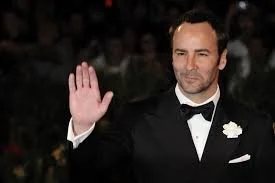5 Strengths of the Introvertish Professional
Fashion designer and genius artist/writer/film director, Tom Ford, is a closet introvert. Only he's out of the closet now. But people still think he loves to party. He admitted to being a loner in a 2011 The Talks interview."Because of my job people think I am out every night, but I really hate all that. I am somebody who likes to be alone and see some close friends. I am a shy and introspective person."
You, too, fall on the spectrum of Introversion if...
You are so outgoing no one (except maybe two people) know that you secretly crave quiet time alone.
You literally dance for joy (on the inside) when a meeting of any kind is canceled.
You read more than most people you know. And you wish you had more time to read.
You'd rather stick hot pins in your eye than go to an after-work happy hour with a large posse of your colleagues (don't worry, that semi-accurate statement remains just between us.)
Well... there is really good news here. Kim Basinger sums it up like this:
"Because I'm such a shy person, having to live it out loud in front of everyone has made me a stronger woman, so much stronger, that it's been a gift to me, in a way."
Once you get that your introversion is a gift and the fact that you choose to act extroverted as a means to reach your important goals, you become even more awesome. (Note: Vogue editor Anna Wintour, Bill Gates, and Elon Musk are classic quiet executives!)
5 (Previously) Unknown Strengths of the Quiet Executive:
1. You're already stronger than you think, and other people see this before you do, usually. That's because, at some point, you realized it was worthwhile in some circumstances, to speak up, to garner attention, and to be heard. Because of your innate introversion, each time that mildly terrifying act takes tremendous energy. The strength you have developed by learning to act in a way that feels somewhat unnatural, goes against your grain, and fuels your persistence in the face of all adversities. In other words, you're already a Rock Star.
2. You listen. You really listen. Listening is how you learn. You learn how to reach others strategically by hearing what they have to say and getting the emotional message as well. Good listeners sell more, make better decisions, and are more appreciated by others. That's why many introverts on Wall Street anticipated the Great Recession of 2008-2009. They saw it coming and spoke up, but their warnings were routinely ignored. (You read about this in Susan Cain's book, Quiet: The Power of Introverts in a World That Can't Stop Talking.)
3. You think deeply. Intricate or breakthrough creative solutions don't come from superficial perusals of the material. While creative breakthroughs typically occur when you are relaxed (in the shower, swimming, etc.,) these innovations happen after you've deeply focused on the problem for some time. Look at the life of any innovator, writer, or visual artist from any period of time and notice significant quiet time, contemplation, and reflection.
4. Because of your reflective nature, you ask better questions. Better questions = better answers.
5. Because you're more likely to edit what you wrote, quiet professionals write better emails, too!
So the Big Question is this. If being an introvert is such a freakin' blessing, why is everyone trying to act like an extrovert?
Answer: It's a matter of national culture. Consider that the U.S. became a world Super Duper Power about the same time that electronic media took center stage in public life. AT&T ran its first radio commercial in 1922. (Click here to hear related NPR story.) Beginning even before that commercial, electronic media has taken on primary importance in everything, and what kind of personality captivates on radio? What kind of personality makes a compelling television commentator? What kind of public persona wins elections because of political commercials?
But if you think about it (and you're the one who will,) it's the Quiet Executives who are in the best place. We are stronger, listen better, and think deeply, yet are able to act enthusiastically, connect with people and make engaging presentations. The conundrum is to find ways to manage and leverage your energy and your natural strengths without sacrificing your innate personal gifts.
The solution: Your imagination is your ultimate secret weapon. Creative conversations can solve problems, engage people, attract money, build profits, and in short, make the world a better place.

